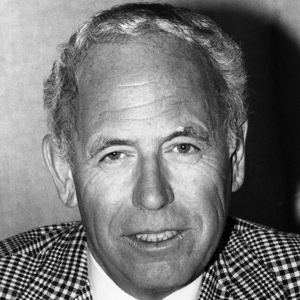
Arthur Frederick Hailey, AE was a British-Canadian novelist whose plot-driven storylines were set against the backdrops of various industries. His books, which include such best sellers as Hotel (1965), Airport (1968), Wheels (1971), The Moneychangers (1975), and Overload (1979), have sold 170 million copies in 38 languages.

Brideshead Revisited: The Sacred & Profane Memories of Captain Charles Ryder is a novel by English writer Evelyn Waugh, first published in 1945. It follows, from the 1920s to the early 1940s, the life and romances of the protagonist Charles Ryder, most especially his friendship with the Flytes, a family of wealthy English Catholics who live in a palatial mansion called Brideshead Castle. Ryder has relationships with two of the Flytes: Sebastian and Julia. The novel explores themes including Catholicism and nostalgia for the age of English aristocracy. A faithful and well-received television adaptation of the novel was produced in an 11-part miniseries by Granada Television in 1981.
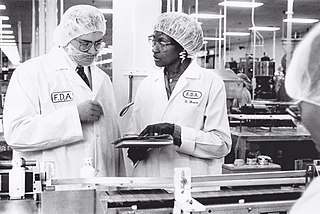
The pharmaceutical industry discovers, develops, produces, and markets drugs or pharmaceutical drugs for use as medications to be administered to patients, with the aim to cure them, vaccinate them, or alleviate symptoms. Pharmaceutical companies may deal in generic or brand medications and medical devices. They are subject to a variety of laws and regulations that govern the patenting, testing, safety, efficacy using drug testing and marketing of drugs. The global pharmaceuticals market produced treatments worth $1,228.45 billion in 2020 and showed a compound annual growth rate (CAGR) of 1.8%.

Eli Lilly and Company is an American pharmaceutical company headquartered in Indianapolis, Indiana, with offices in 18 countries. Its products are sold in approximately 125 countries. The company was founded in 1876 by, and named after, Colonel Eli Lilly, a pharmaceutical chemist and veteran of the American Civil War.
Ovation Pharmaceuticals is an American manufacturer and distributor of pharmaceuticals products. It was founded in 2000 by Jeffrey Aronin and is headquartered in Deerfield, Illinois. A major office is also located near Lebanon, New Jersey. Ovation is a privately held corporation based on a business model of acquiring mature but under-promoted pharmaceuticals, as well as pharmaceutical candidates which are far along the development and FDA certification processes. Since 2009, the company has been wholly owned by the Danish pharmaceutical company Lundbeck.

Medicinal or pharmaceutical chemistry is a scientific discipline at the intersection of chemistry and pharmacy involved with designing and developing pharmaceutical drugs. Medicinal chemistry involves the identification, synthesis and development of new chemical entities suitable for therapeutic use. It also includes the study of existing drugs, their biological properties, and their quantitative structure-activity relationships (QSAR).

Nizatidine is a histamine H2 receptor antagonist that inhibits stomach acid production, and is commonly used in the treatment of peptic ulcer disease and gastroesophageal reflux disease.
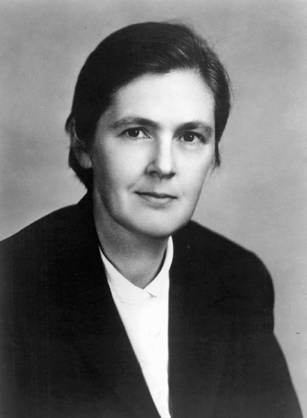
Frances Kathleen Oldham Kelsey was a Canadian-American pharmacologist and physician. As a reviewer for the U.S. Food and Drug Administration (FDA), she refused to authorize thalidomide for market because she had concerns about the lack of evidence regarding the drug's safety. Her concerns proved to be justified when it was shown that thalidomide caused serious birth defects. Kelsey's career intersected with the passage of laws strengthening FDA oversight of pharmaceuticals. Kelsey was the second woman to receive the President's Award for Distinguished Federal Civilian Service, awarded to her by John F. Kennedy in 1962.
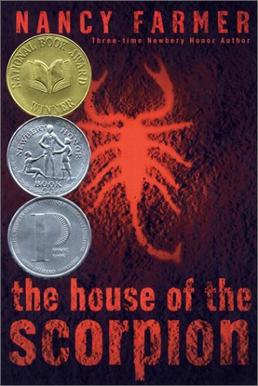
The House of the Scorpion is a 2002 science fiction young adult novel by Nancy Farmer. It is set in the future and mostly takes place in Opium, a country which separates Aztlán and the United States. The main character Matteo Alacrán, or Matt, is a young clone of a drug lord of the same name, usually called "El Patrón". It is a story about the struggle to survive as a free individual and the search for a personal identity.

Secobarbital is a short-acting barbiturate derivative drug that was patented in 1934 in the United States. It possesses anaesthetic, anticonvulsant, anxiolytic, sedative, and hypnotic properties. In the United Kingdom, it was known as quinalbarbitone. It is the most frequently used drug in physician-assisted suicide within the United States. Secobarbital is considered to be an obsolete sedative-hypnotic, and as a result, it has largely been replaced by the benzodiazepine family. Seconal was widely abused, known on the street as "red devils" or "reds".

Eli Lilly was an American soldier, pharmacist, chemist, and businessman who founded the Eli Lilly and Company pharmaceutical corporation. Lilly enlisted in the Union Army during the American Civil War and recruited a company of men to serve with him in the 18th Independent Battery Indiana Light Artillery. He was later promoted to major and then colonel, and was given command of the 9th Regiment Indiana Cavalry. Lilly was captured in September 1864 and held as a prisoner of war until January 1865. After the war, he attempted to run a plantation in Mississippi, but it failed and he returned to his pharmacy profession after the death of his first wife.
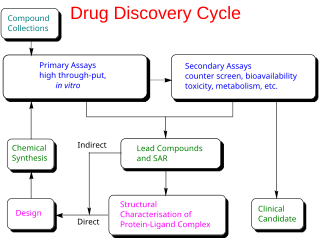
Drug development is the process of bringing a new pharmaceutical drug to the market once a lead compound has been identified through the process of drug discovery. It includes preclinical research on microorganisms and animals, filing for regulatory status, such as via the United States Food and Drug Administration for an investigational new drug to initiate clinical trials on humans, and may include the step of obtaining regulatory approval with a new drug application to market the drug. The entire process – from concept through preclinical testing in the laboratory to clinical trial development, including Phase I–III trials – to approved vaccine or drug typically takes more than a decade.
BioMarin Pharmaceutical Inc. is an American biotechnology company headquartered in San Rafael, California. It has offices and facilities in the United States, South America, Asia, and Europe. BioMarin's core business and research is in enzyme replacement therapies (ERTs). BioMarin was the first company to provide therapeutics for mucopolysaccharidosis type I, by manufacturing laronidase. BioMarin was also the first company to provide therapeutics for phenylketonuria (PKU).
The Clarence Derwent Awards are theatre awards given annually by the Actors' Equity Association on Broadway in the United States and by Equity, the performers' union, in the West End in the United Kingdom.

Cinoxacin is a quinolone antibiotic that has been discontinued in the U.K. as well the United States, both as a branded drug or a generic. The marketing authorization of cinoxacin has been suspended throughout the EU.

Lexicon Pharmaceuticals, Inc. is a biopharmaceutical company developing treatments for human disease. The company was founded in 1995 in The Woodlands, Texas under the name Lexicon Genetics, Incorporated by co-founders Professor Allan Bradley, FRS and Professor Bradley's postdoctoral fellow Arthur T Sands. The company has used its patented mouse gene knockout technology and extensive in vivo screening capabilities to study nearly 5,000 genes in its Genome5000 program and has identified over 100 potential therapeutic targets. Lexicon has advanced multiple drug candidates into human clinical trials and has a broad and diverse pipeline of drug targets behind its clinical programs. Lexicon is pursuing drug targets in five therapeutic areas including oncology, gastroenterology, immunology, metabolism, and ophthalmology.

Phenoxymethylpenicillin, also known as penicillin V (PcV) and penicillin VK, is an antibiotic useful for the treatment of a number of bacterial infections. Specifically it is used for the treatment of strep throat, otitis media, and cellulitis. It is also used to prevent rheumatic fever and to prevent infections following removal of the spleen. It is given by mouth.

Kadmon Corporation is a biopharmaceutical company based in New York City. It also has operations in Warrendale, PA and Brighton, MA. The company was founded in 2009 by Samuel D. Waksal, founder and former CEO of ImClone Systems, now fully merged into Eli Lilly and Company. Waksal had served a federal prison sentence stemming from his fiduciary role as CEO in the 2001 ImClone stock trading case. When released in 2009 he was barred from serving as an officer for any publicly traded company but Kadmon was privately financed.

Aticaprant, also known by its developmental codes JNJ-67953964, CERC-501, and LY-2456302, is a κ-opioid receptor (KOR) antagonist which is under development for the treatment of major depressive disorder. A regulatory application for approval of the medication is expected to be submitted by 2025. Aticaprant is taken by mouth.
Richard B. Gaynor is an American physician specializing in hematology-oncology, educator, drug developer, and business executive. He served as an Associate Professor of Medicine at UCLA School of Medicine for nearly a decade, and subsequently as an endowed Professor of Medicine and Microbiology at the University of Texas Southwestern Medical School prior to joining the pharmaceutical industry in 2002. His research on NF-κB, IκB kinase, and other mechanisms regulating viral and cellular gene expression has been covered in leading subject reviews. He has been a top executive at several pharmaceutical companies, with respect to the development and clinical testing of novel anticancer drugs and cell therapies. For over a decade and a half, he worked at Eli Lilly and Company, where he became the Senior Vice President of Oncology Clinical Development and Medical Affairs in 2013. Gaynor was President of R&D at Neon Therapeutics from 2016 to 2020, when he became the President of BioNTech US, both pharmaceutical companies headquartered in Cambridge, MA. His honors include being elected a member of the American Society for Clinical Investigation, and the Association of American Physicians.
















